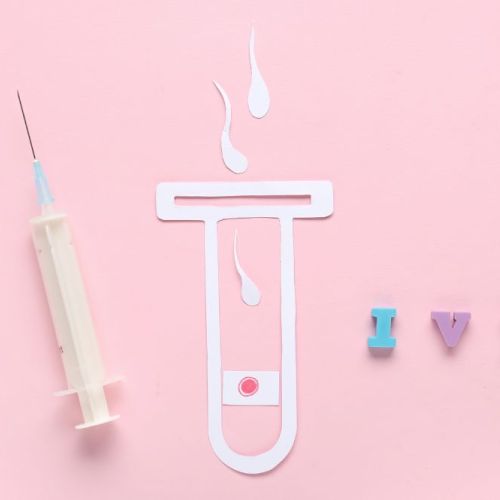How Long Does it Take Tubes to Heal After Tubal Reversal Surgery?

If you made a decision to have your tubes tied, but years later decide you’d like to have a baby, you may be able to have tubal reversal surgery. A tubal ligation clamps or seals the fallopian tubes to prevent pregnancy. Tubal reversal surgery rejoins the part of the fallopian tube that was previously clamped so that an egg can pass through.
How long does it take tubes to heal after tubal reversal surgery? It’s natural to have questions about how soon you recover from this type of procedure so you can return to your normal routine. The team at the Center for Reproductive Health is available to help you understand what’s involved in tubal reversal surgery and how long it takes to recover.
Am I A Candidate?
Before having tubal reversal surgery, your doctor evaluates your overall health and the likelihood that reversing your tubal ligation will allow you to successfully conceive. Some of the factors considered include:
- Your age
- The type of surgery you had done
- How much fallopian tube is undamaged
- Whether you have any gynecological disorders such as endometriosis, pelvic inflammatory disease or fibroids
Your doctor also considers whether you have any autoimmune diseases that might affect pregnancy. The health of your partner’s sperm is also considered before performing this procedure. If you’re not a good candidate for this procedure, IVF is another option that may help you to have a baby.
The Procedure
A tubal reversal is an outpatient procedure that usually takes about two or three hours. You’re asleep during the procedure and won’t feel any pain. After the procedure, you’ll stay at the medical facility for a couple of hours. You may have nausea and discomfort at first and your doctor may prescribe medication to help control side effects of the procedure.
Recovering From Tubal Reversal
Recovery time can vary from one woman to another. You may have some pain and tenderness around the incision site and the incision site needs to remain clean and dry to promote optimal healing. Most women can resume normal daily activities in a week or two. During the first month after surgery, you should avoid lifting anything over 20 pounds. You can resume having sex two or three weeks after the procedure.
A post-op visit is scheduled after the procedure. At this visit, your doctor checks to make sure your healing is progressing as expected.
Pregnancy After Tubal Reversal
The hope is that having a tubal reversal gives you a good chance of having a healthy pregnancy. Many women go on to conceive within a year of a tubal reversal. Age is an important factor in your ability to get pregnant after this procedure. Success is affected by the type of tubal ligation you originally had done, the amount of tube that’s left and the experience level of your surgeon.
The experts at the Center for Reproductive Health work closely with you to answer any questions you may have about recovering from tubal reversal surgery and things you may be able to do to help fertility. Schedule a consultation today.
Eliran Mor, MD
Reproductive Endocrinologist located in Encino, Valencia & West Hollywood, CA
FAQ
What does a reproductive endocrinologist and infertility specialist do?
Reproductive endocrinology and Infertility is a sub-specialty of Obstetrics and Gynecology. In addition to managing medical and surgical treatment of disorders of the female reproductive tract, reproductive endocrinologist and infertility (REI) specialists undergo additional years of training to provide fertility treatments using assisted reproductive technology (ART) such as in vitro fertilization.
Reproductive endocrinologists receive board certification by the American Board of Obstetrics and Gynecology in both Obstetrics and Gynecology and Reproductive Endocrinology and Infertility.
When should I see an REI specialist?
In general, patients should consider consulting with an REI specialist after one year of trying unsuccessfully to achieve pregnancy. The chance of conceiving every month is around 20%, therefore after a full year of trying approximately 15% of couples will still not have achieved a pregnancy.
However, if a woman is over the age of 35 it would be reasonable to see a fertility specialist earlier, typically after 6 months of trying.
Other candidates to seek earlier treatment are women who have irregular menses, endometriosis, fibroids, polycystic ovary syndrome (PCOS), women who have had 2 or more miscarriages, or problems with the fallopian tubes (prior ectopic pregnancy).
What are the reasons we are having trouble conceiving?
Approximately 1/3 of the time cause for infertility is a female factor, 1/3 of the time a male factor, and the remaining 1/3 a couples’ factor.
At CCRH, we emphasize the importance of establishing a correct diagnosis. Both partners undergo a comprehensive evaluation including a medical history and physical exam.
Furthremore, the woman’s ovarian reserve is assessed with a pelvic ultrasound and a hormonal profile. A hysterosalpingogram (HSG) will confirm fallopian tube patency and the uterine cavity is free of intracavitary lesions. A semen analysis is also obtained to evaluate for concentration, motility, and morphology of the sperm.
Additional work up is then individualized to direct the best possible treatment option for each couple.
What is IVF? What is the process like?
In vitro fertilization (IVF) is the process that involves fertilization of an egg outside of a woman’s body.
The process starts with fertility drugs prescribed to help stimulate egg development. In your natural cycle, your body is only able to grow one dominant egg, but with stimulation medication we can recruit multiple eggs to continue to grow. After about 8-10 days of stimulation, the eggs are surgically retrieved and then fertilized with sperm in a specialized laboratory. Fertilized eggs are then cultured under a strictly controlled environment within specialized incubators in the IVF laboratory for 3-5 days while they develop as embryos. Finally, embryos (or an embryo) are transferred into the uterine cavity for implantation.
Should I have IVF?
Before deciding if IVF is the right choice, it’s important to sit down with an REI specialist to discuss available treatment options. For some people, other methods such as fertility drugs, intrauterine insemination (IUI) may be the best first choice treatment. At CCRH, we believe each individual couple is unique and not everyone needs IVF.
Is the IVF procedure painful?
While not painful, the fertility medications may some side effects including headaches, hot flashes, mood swings, and bloating. The injection sites may also bruise.
Will IVF guarantee a baby?
Unfortunately, no. Many people think once they start IVF it’s a matter of time that they will be pregnant and have a baby. But according to national statistics per the Society of Assisted Reproduction (SART), on average 40% of assisted reproduction cycles achieve live births in women under age 35. The chances of success then continue to decrease with advancing age.
At CCRH, we employ only evidence-based interventions to ensure patient safety and optimal outcome. While we cannot guarantee a baby, we guarantee that you will receive the best, most advanced, personalized care to help you maximize your chance of a baby.
What is the success rate for IVF?
The average IVF success rate (success measured in live birth rate) using one’s own eggs begins to drop around age 35 and then rapidly after age 40. This is due to the decline in egg quantity and egg quality as a woman ages.
Our clinic’s success rate consistently beats the national average year after year.
Do insurance plans cover infertility treatment? How much does IVF cost?
Individual insurance plans often do not have any coverage for infertility treatments. If you have a group plan, you can call members services to see if they have coverage for infertility (including consultation/workup and IVF).
After your consultation with our REI specialist, one of our dedicated account managers with sit with you to go over the cost of treatment.




